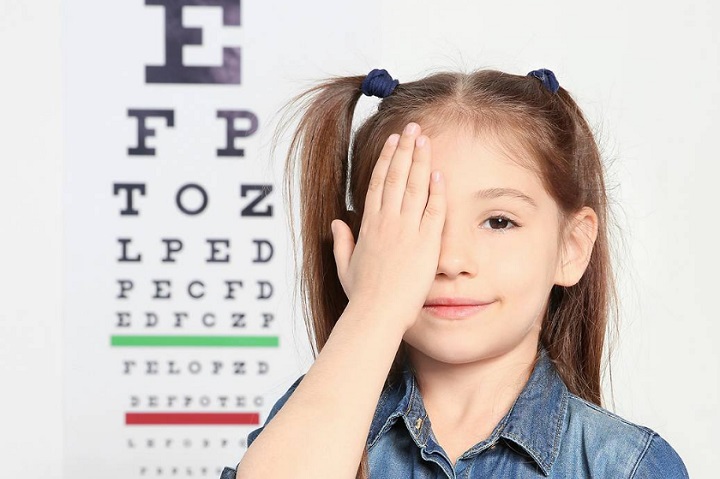Myopia, or short-sightedness, is an eye condition where the child’s eyeball becomes elongated from front to back.
However, it can also be caused when the eye’s cornea gets curved too deeply. As a result, light rays fall short of the retina, and the child can see things placed near them, but the faraway objects look blurred. As a result, nearly 20% of children suffer from myopia and require glasses or eye-correction treatments. However, you can prevent your children from having myopia with a few healthy tricks.
-
Prepare a healthy diet
If you want to keep your children’s eyes healthy and sharp, then you have to make sure that their diet is rich in nutrients. For example, a variety of colorful fruits and vegetables, also known as the rainbow diet, will prevent myopia.
Make sure the food items are rich in vitamins C and E, zinc, and lutein. Some of the common items you can give your little ones every day are orange carrots, yellow squash, thick red peppers, and green broccoli.
For non-vegetarians, protein-rich food items like lean red meat, eggs, and poultry are considered to be great food sources.
-
Encourage them to play outdoors
Along with a healthy body, a healthy mind will also keep your children’s eyes healthy! Believe it or not, spending just an hour or so every day outside will promote physical activity and social skills.
Most importantly, your little ones won’t stay home watching TV or looking at their smartphones all day. Blue light, the light emitted from electronic devices, heavily contributes to the cause of myopia in children.
So restricting blue light activity and encouraging them to engage with the world outside will indirectly help them to stay away from myopia.
-
Protect their eyes
Another healthy habit you can ask your child to adopt is protecting their eyes as much as possible. Whether it’s from the UV rays of the sun or from sharp objects like scissors, your child should cover and protect their eyes from all sorts of harm.
After all, the eyes are the most sensitive part of anyone’s body. So the best way to prevent myopia, or even more serious eye conditions, is to wear goggles or shades outdoors.
Make them a pair of sunglasses that can block 100% of UV rays because children’s eyes allow much more sunlight, and hence UV rays, than those of adults.
-
Cut down time spent on near-reading
While reading or typing are good habits, you should ask your young ones to reduce their time spent continuously reading or looking at screens. Ask them to take a break after every 30-40 minutes by looking at another object or taking a walk outdoors.
If there is any unnecessary near-sighted work, such as playing too many video games, make sure that this is as minimal as possible. For example, the minimum distance between their eyes and the book should be about 30 cm when they are reading.
The environment should also be well-lit and not stressful to the eyes.
-
Take them for regular appointments
Even if your kid seems to have no eye conditions, it’s still best to take them to an ophthalmologist every once in a while.
A yearly comprehensive eye exam will let you know if there are any underlying eye problems your child might suffer from in the future. However, it’s also important to note that vision screenings or eye checkups conducted in schools aren’t a replacement for eye examinations at the doctor.
While eye checkups in your child’s school are fine, they don’t always have the best or the most advanced instrument a proper clinic has.
-
Keep an eye out for symptoms
The moment you see that your child might be suffering from myopia, try to take active steps as soon as possible so that their condition doesn’t worsen.
For example, you should speak to the doctor if they keep complaining of frequent headaches or watery eyes. Some other common symptoms of myopia are blurry vision and redness in the eyes.
Additionally, if your child is constantly rubbing their eyes because they or can’t focus on the screen or book in front of them, this can clearly be a sign of myopia. Don’t waste any time and book an appointment.
Conclusion
These are some of the basic health tips you should teach your little ones, so they don’t have to suffer from myopia later.


















